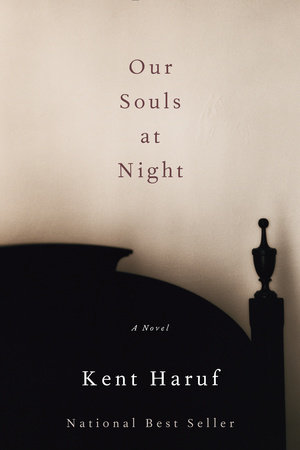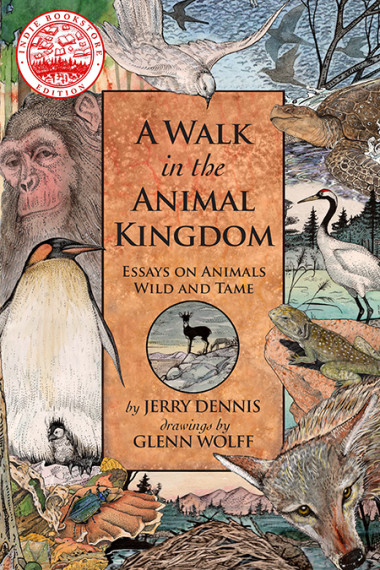Our Souls at Night is Kent Haruf’s last book. Haruf died in November 2014, before the novel’s publication. Our Souls, like his previous title, Benediction, reflects the wisdom of a man looking at his own mortality through the lens of a good life, a life well lived. The novel’s focus is on happiness, one of the most elusive of topics to convey. It’s far easier to write about murder, mayhem, and dysfunctional characters than it is to describe common people experiencing day-to-day contentment.
Holt, Colorado, the small town setting of all Haruf’s novels including the acclaimed Plainsong and Benediction, is the home of Addie Moore and Louis Waters. Addie and Louis embody the seemingly undistinguished, rural setting in their commonplace simplicity. The novel opens with two simple sentences, “And then there was the day when Addie Moore made a call on Louis Waters. It was an evening in May just before full dark.”
I wanted to suggest something to you.
Oh?
Yes. A Kind of proposal. . .
I wonder if you would consider coming to my house sometimes to sleep with me.
What? How do you mean?
I mean we’re both alone. We’ve been by ourselves for too long. For years. I’m lonely. I think you might be too. I wonder if you would come and sleep in the night with me. And talk.
He stared at her, watching her, curious now, cautious.
You don’t say anything. Have I taken your breath away? she said.
I guess you have.
I’m not talking about sex.
I wondered.
No, not sex. I’m not looking at it that way. I think I’ve lost any sexual impulse a long time ago. I’m talking about getting through the night. And lying warm in bed, companionably. Lying in bed together and you staying the night. The nights are the worst. Don’t you think?
Yes, I think so.
And so it begins. And what begins is the gift of 179 pages of quiet, eloquent wonder that will captivate even the most cynical reader. In a small town, people talk so the fact that Louis and Addie are together is fodder for gossip and many find their behavior unseemly. After Addie’s son’s wife leaves him, he takes his six-year-old son Jamie to stay with Addie. Louis thinks that will be the end of their arrangement. It isn’t as Louis provides a calm, male presence in Jamie’s turbulent life. Addie’s son doesn’t approve, though, and complications arise.
Last week, I spoke to three groups about books to buy for holiday giving. At the last of these sessions for an organization that supports writers and reading, a member noted that she’d read Our Souls at Night aloud to her husband as he lay with his head in her lap. I can’t imagine a better way to enjoy this marvel of a novel that celebrates love so exquisitely.
It’s tempting to simply link this post to author Ursula LeGuin’s marvelous review in London’s The Guardian. I hope the following quote from it will entice you to read her entire review and the book itself.
“The voice is quiet. All the darkness is there, but we’re looking at the light. A lamp in a bedroom in a small town in Colorado.”
Summing it Up: Read this book to experience the simple joy of ordinary love. Read it to ponder Louis’s words. “I just want to live simply and pay attention to what’s happening each day. And come sleep with you at night.”
Many of us recite the line “on earth as it is in heaven” daily. Our Souls at Night embodies those words. Give a copy to someone you love.
Note: Robert Redford and Jane Fonda are set to star in the film version of the novel.
Rating: 5 stars
Category: Fiction, Five Stars, Gourmet, Grandma’s Pot Roast, Soul Food, Book Club
Publication date: May 26, 2015
Read an Excerpt: http://www.5280.com/cultureandevents/books/digital/2015/06/book-excerpt-our-souls-night
Reading Group Guide: http://knopfdoubleday.com/book/252367/our-souls-at-night/
What Others are Saying:
The Boston Globe: https://www.bostonglobe.com/arts/books/2015/06/12/our-souls-night-kent-haruf/bPMH4xotscHJoS70tu2dzK/story.html
New York Times: http://www.nytimes.com/2015/06/07/books/review/our-souls-at-night-by-kent-haruf.html






